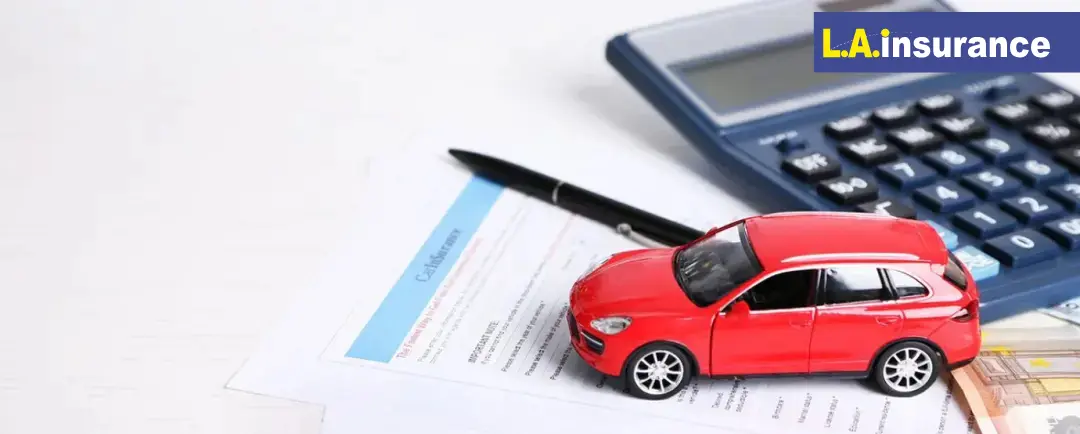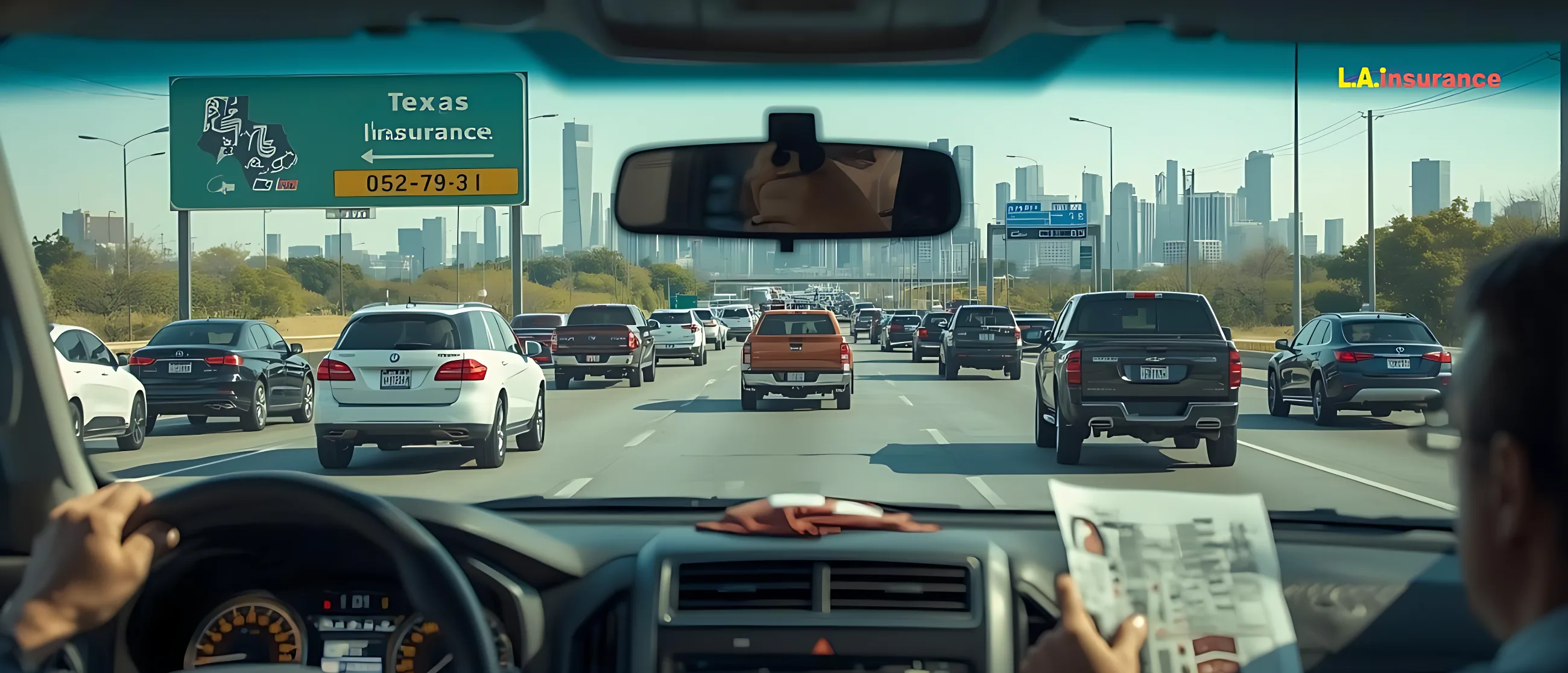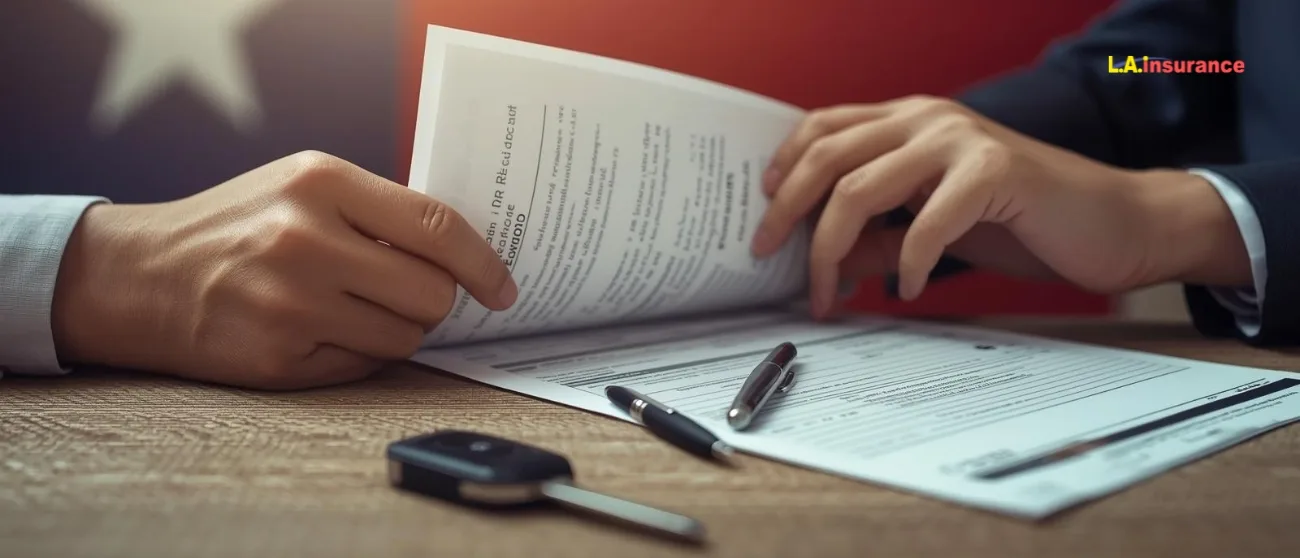
Publish Date: 03-08-2024
Auto Insurance
Last Updated: 04-12-2025
Can You Cancel an Auto Insurance Claim After Filing it?
Have you been in a car accident lately? Then you might have thought about claiming your auto insurance policy. However, in this situation, it can be stressful for you to decide whether you should claim your car insurance or not. Even after filing a claim, you still may wonder if can I cancel my auto insurance claim. Will my insurer allow me to do it?
Here we want to get you out of this trial.So, the straightforward answer to the question "Can I cancel an auto insurance claim after filing it": Yes, you can cancel your car insurance claim in most situations. But there are other circumstances where you cannot withdraw your claim. For instance, if you have been found at fault in the accident, you might have to consult your insurer about it.Other factors also play a role in deciding this.
In this blog post, we'll discuss the reasons you might want to cancel an auto insurance claim, whether the insurance company allows you to cancel it, and if they do, can you do it all the time? We'll also talk about how to cancel a car insurance claim, what happens,how it affects your policy, and more.
Reasons Why Drivers Might Want to Cancel Auto Insurance Claim?
There are several reasons why drivers consider canceling their auto insurance claims. You probably want to withdraw your claim due to personal circumstances. Or, if you have filed a claim by mistake, you might also want it to be canceled. Let’s discuss various reasons behind canceling auto insurance claims.
Change in Personal Situations
Life is unpredictable sometimes! It may throw unexpected events, such as illness, relocation, or other personal obligations. So, this may make it challenging for you to continue with an insurance claim.
Made a Claim by Mistake
In the chaos following an accident, you may file a claim accidentally or without fully understanding the implications. After reconsideration, dropping the claim may seem like the right thing to do.
The Cost of the Damage Is Less Than Your Deductibles
The cost of the deductible required to process the claim may be ridiculously high. Therefore, you may reconsider pursuing the claim. For instance: If a driver has a $1000 deductible but the repair cost is only $800, they might decide it’s not worth filing the claim, as they would have to pay more out of pocket than the insurance would cover.
Inability to Afford Deductibles
You may find that the compensation offered by the insurer is not sufficient to cover the damages. Besides, if it seems like you cannot afford to pay the deductibles out of your pocket, then you may consider canceling your auto insurance claim.
Claim Process Complexity
The complexity of the claim process, including paperwork, communication with insurance companies, and legal procedures can be stressful and time-consuming. This can trigger you to abandon the claim.
Lack of Evidence
If drivers realize they lack sufficient proof (such as filing a claim without police report, valid witness or photos/videos of the accident scene) to establish their auto claim, they may want to cancel it rather than risk rejection or further complications. Or they might consider filing an auto claim with the other party’s insurance company.
Private Agreement
Sometimes, drivers can reach a private agreement with the other party involved in the accident. If they decide to settle the matter privately, there would be no need to proceed with an auto insurance claim.
Concern About Premium Increases
You might be familiar with the concept that after every car accident or auto insurance claim, the insurance premium goes up. So, this might be a valid reason for some drivers for which they might cancel the claim. Read our article about how much does car insurance go up after an accident to learn more about it.
Re-evaluation of Damages
After a closer inspection, the damage might seem less severe than initially thought. If repairs are minor and manageable, you might decide not to go through the hassle of a claim.
Do Insurance Providers Allow It to Cancel Your Claim?
Yes, the insurance company allows it to cancel your claim in most situations. However, the process and implications can vary. Generally, you have the right to withdraw a claim at any stage before the settlement is finalized.
However, as soon as you decide to cancel the claim, you should notify your insurance provider. It’s best if you can inform them in writing. Because this ensures a clear record of your intent and the date of the decision.
It should be noted that though canceling a claim is an easy process, there may be associated costs, such as fees for any investigation or assessment already conducted by the insurance company. So, you need to review your auto insurance policy and consult with your insurer to understand the possible consequences.
Can You Cancel an Auto Insurance Claim in Any Situation?
As we have discussed, you can cancel a car insurance claim in most circumstances. However, there are certain situations or limitations to consider. First of all, you can cancel a claim at various stages, such as immediately after filing, during the investigation, or even after an agreement is reached but before any payment is made.
However, once payment has been issued, it can be a little more complicated. You also might need to return the payout. In addition, if the insurer invests substantial resources in investigating the claim, they may hold you responsible for covering those costs. Let’s give you a list of instances in which you can and cannot cancel your vehicle insurance claim.
Situations Where You Can Cancel a Claim
- Immediately after filing a claim
- During the investigation process
- Before a settlement agreement is finalized
- If no payments have been made yet.
- If minor damages are covered out of your pocket.
Situations Where You Cannot Cancel an Auto Insurance Claim
- You will not be allowed to cancel your claim if you caused the accident and if someone has filed a claim against you.
- After receiving the payment, it becomes much more complex to cancel the claim.
- If terminating the claim would violate agreements of your policy or other legal agreements, you cannot cancel it.
- If significant resources and costs have already been invested, withdrawal of the claim might not be possible without covering these expenses.
- If the statute of limitation for filing a lawsuit is about to run out, you shouldn't cancel the claim. Because it could make it harder for you to file a case in the future.
- If your claim involves serious harm or damage, withdrawal of your auto claim might not be the best thing to do because it could have long-lasting costs and effects.
- Keep in mind that you can cancel the insurance claim even if you get paid in check, as long as you haven't cashed the check yet. If you have already cashed it, call your car insurance company and ask if they will decline the claim if you return the fund.
What’s the Process of Canceling Your Car Insurance Claim?
It’s not that hard to cancel your car insurance claim. If you follow the right steps after consulting the local insurance agent, it will be easy for you too. Here’s how you can do it:
Step 1: Evaluate Your Situation
First of all, assess your situation carefully. Make sure that canceling the claim can benefit you. You should consider factors such as repair costs, deductibles, and potential increases in car insurance rates. If everything feels alright, go ahead. Let the insurance agent know that you want to discontinue the claim. Note that this evaluation is important. Sometimes paying out of your pocket can save you money in the long run!
Step 2: Contact Your Insurance Company
Reach out to your vehicle insurance provider as soon as you decide to cancel the car insurance claim. It’s best to communicate in writing via email or letter to have a record of your request. Provide all the necessary information, including your policy number, claim number, and a brief explanation of why you want to cancel.
Step 3: Inform All Parties Involved
In this step, notify all involved parties, including other drivers, claim adjusters, and insurance agents. Let them know you’re canceling your claim. This way you can prevent any possible confusion. Also, the notified members can take proper action quickly.
Step 4: Handle Any Outstanding Payments
You should be prepared to cover your costs already incurred by the insurance company. The claim adjusters might include expenses for initial investigations or assessments. They may bill these costs to you directly or deduct them from any refunds.
Step 5: Retrieve Necessary Documentation
Gather all the papers you need, like repair estimates, photos of the damage, and any correspondence with the insurance company. If the cancellation is because of a private settlement with the other party, keep these documents for your records.
Step 6: Confirm Cancellation
Make sure your auto insurance claim cancellation is officially recorded by the insurance company. Follow up with them to receive written confirmation that said the claim has been canceled. This is important for your records and future insurance dealings.
Learn more: How to file a claim after a car accident?
What Happens If You Withdraw Auto Insurance Claim?
If you withdraw your car insurance claim, it can have several implications. Both immediate and long-term effects. An immediate implication; for instance: canceling the claim means you won’t receive any payout for the damages or losses reported. Also, the process and outcome can affect your auto insurance policy and future interactions with your insurer.
Besides, you’ll face long-term consequences as well. For instance, even if you withdraw your claim, your insurer may still record the incident in their files. This record can influence your insurance rates and future claims.
Although canceling the claim is in the favor of the insurance companies, some insurers may try to get benefits out of this situation. For instance, some insurance providers might see a withdrawn claim similar to a settled claim when determining your risk profile. For this reason, you may have to pay higher premiums in the future. This can be frustrating as a policyholder. Subsequently, you may ask whether canceling claims affects your insurance installments.
Does Car Insurance Rate Increase Even If You Cancel Your Claim?
The answer is yes, there is a chance! Your car insurance rates can increase even if you cancel your claim. Because when you file a claim, your insurer records the incident. This record can impact your risk profile. As you know insurance companies determine your car insurance rates based on the risk factors. That’s why a safe driving record and fewer claim histories indicate a low-risk profile.
Let’s say you file a claim for a minor accident. But later you decide to cancel it. The insurer still records the incident. Based on this record, they might see you as a higher risk and raise your rates at renewal.
Think that you filed a claim for a fender bender but withdrew it. Your insurance company now knows about the incident. This could lead to higher premiums, even though they haven’t paid you for the damages.
So it is advisable that you consider consulting your insurance provider or insurance agent about it. Ask them about the future consequences of canceling a claim. More specifically, you should inquire whether a withdrawn claim affects your future insurance costs.
Things to Keep in Mind Regarding Withdrawn of Car Insurance Claim
- Canceling a claim might still affect your car insurance rates and influence your future premiums.
- You should review your automobile insurance policy carefully to understand any legal consequences.
- You should be aware of any costs related to the cancelation. For instance: Liabilities if the investigations were already initiated against your claim.
- If you’re canceling it due to the complexity of the claim process, let the insurance provider know about it.
- Consider consulting a lawyer in case of severe damage or injury.
The Bottom Line
So “Can you cancel an auto insurance claim?” Yes, but it’s important to understand the potential consequences. Canceling a claim might still affect auto insurance rates and appear on your insurance records.
Consider the financial implications in case of high deductibles or complex claim processes. Before canceling your claim, consult with your car insurance company and try to understand the full impact on your insurance policy.
Thinking about switching to a more affordable insurance agency? Contact L.A. Insurance for affordable full-coverage auto insurance. If you can’t figure out whether the other driver involved in an accident has auto insurance coverage or not, read our article to learn how to find out if someone has auto insurance.
Frequently Asked Questions (FAQs) on Canceling an Auto Insurance Claim
# Can You Cancel a Car Insurance Claim After It Has Been Filed?
Yes, you can cancel your claim after it has been filed. As it is in the favor of the insurance company, they shouldn’t have any problem with it. Even if the insurer already paid you in cheque for compensation and you haven't cashed it yet, you can still give it back to the insurance company and ask them to cancel your claim.
# Can I Reopen a Car Insurance Claim?
Closed car insurance claims aren’t generally possible to be reopened. However, if you decide to reopen your claim that has been already canceled, rejected, or settled, the best thing you can do is consult an insurance claims attorney. It is noteworthy that if you have new evidence or situations, some insurers might allow you to appeal or reconsider the claim.
# Does Canceling Auto Insurance Claim Affect Your Future Claim?
Yes, canceling your auto claim might affect your future claim. Because the withdrawn claim may still show on your insurance records. In some cases, your insurer may raise your car insurance premiums as they might view you as a higher risk.
# Can You Cancel an Auto Insurance Claim After Receiving a Check from the Insurer?
It may seem complex. But canceling an auto insurance claim after receiving a check is possible. Simply contact your insurance provider and ask them whether they can cancel your claim if you return the check.
# What Should You Do If Your Auto Insurance Claim Is Cancelled by the Insurer?
If your auto insurance claim is declined by the insurance company, contact them to understand the reasons. Gather necessary documentation and seek clarification. You can also take guidance from an auto insurance claim attorney if you’re not satisfied with the insurer’s stand. Learn More: What to do when auto insurance denies claim?
# Can You Cancel an Auto Insurance Claim That Is Under Investigation?
You can cancel your auto claim even if it is under investigation. But in some cases, it may come with consequences. For instance, you might be charged fees for the investigation or assessment already done by the insurance company. So, it’s better to discuss these potential costs or charges with your insurance provider.
# How Do I Make My Insurer Stop Calling Me About a Claim I Do Not Wish to Continue?
If you wish to discontinue your car insurance claim and want to stop insurers from calling you, the best approach is to directly communicate your decision in writing. You can send an email or letter that clearly tells your intention to withdraw the claim and request that they stop all further interaction or communication regarding it. If you’re too busy to do that initially, you can just call their customer service center, and let them know your distress.
# Does canceling a claim after receiving a check work?
It’s difficult to cancel a claim once your insurer has already issued a payment. In most cases, the claim is considered settled as soon as the check is cut. You can ask your insurer if returning the check changes anything, but many companies still treat the claim as paid and keep it on your record.
Editorial Disclaimer
The information provided on this blog is for general informational purposes only and does not constitute professional insurance, legal, or financial advice. Coverage and rates are subject to individual eligibility, underwriting guidelines, and state availability. For specific questions regarding your policy or to get an accurate quote, please contact a licensed L.A. Insurance agent directly. We're an independent agency and not a direct insurance carrier. For more information on how we operate and handle your data, please see our Terms and Conditions and Privacy Policy.
Tag :
Auto insurance
best insurance
auto insurance michigan








